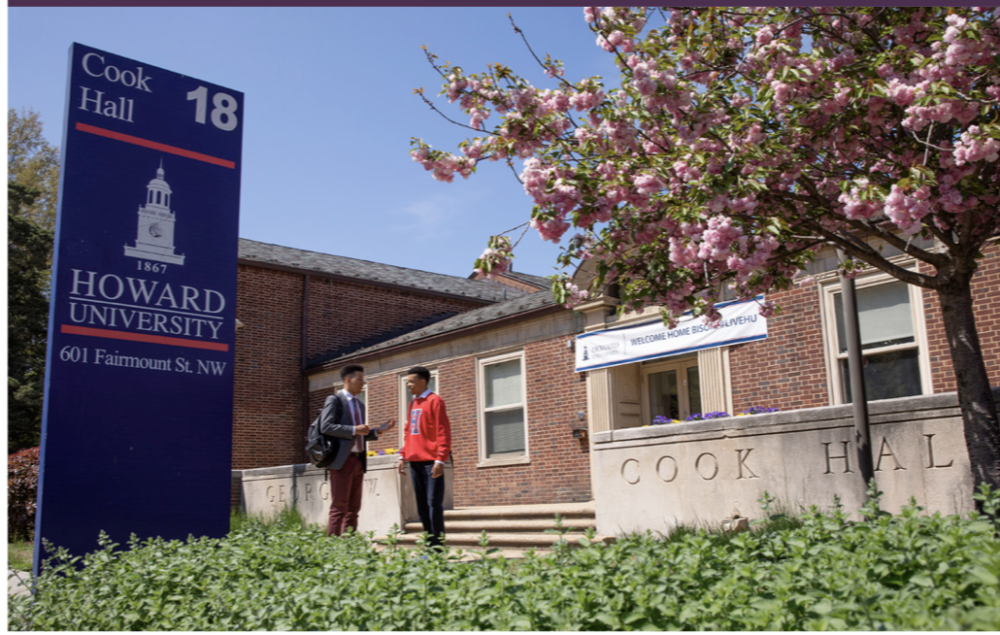
Howard University’s junior and senior students who returned to campus this fall were left scrambling for housing options after the university announced that housing preference would be given to freshmen and sophomores. Upperclassmen who returned to campus wouldn’t be guaranteed housing, and many of them were forced to find last-minute housing options.
The university has hybrid, in-person and online, instruction in Fall 2021, which made staying at home for classes virtually impossible. According to university communications, there are 12,000 registered students and 5,714 beds available with two additional off-campus resident locations this year.
“Not having housing has put a large financial strain on my single mother, being that it is hard to find safe and reliable housing under $1k a month. It’s been a very stressful situation,” said junior broadcast journalism major Makailah A. Gause.
The plan to return to campus caused upperclassmen to realize that there aren’t many affordable options for students hoping to live near the main campus in D.C.
“I was a bit disappointed when I realized that we didn’t have the option for on-campus housing, especially after being gone for over a year due to COVID-19. Not only is it hard to find affordable off-campus housing, but staying in a dorm is a pretty big part of the college experience,” said junior journalism major Cory Utsey.
This fall, Howard has more than 3,000 freshmen compared to the 1,834 new students welcomed in 2019. There are not enough on campus housing options available to accommodate the influx of students.
“Becoming a resident assistant was a great avenue to housing for me and many other upperclassmen. However, that certainly wasn’t the case for everyone,” said Howard University Student Association (HUSA) Chief of Staff Laten Jordan.
In response to the vast number of students with unsatisfied housing, HUSA, in partnership with Residence Life and University Housing, released a “2021-22 Housing Form” for students still looking for on campus housing that closed Aug. 5. Through the form, the organizations were able to place over 300+ students in university housing according to Jordan.
In the future, HUSA also plans to continue advocating for the increase of off-campus apartment partnerships and invest in new on-campus dormitory spaces that accommodate for the growth in incoming class sizes.
Although all upperclassmen weren’t able to receive university housing, incoming freshmen began moving into their assigned dorms on August 6.
“Housing was fairly easy for me! I’m aware that it was easy because I’m an incoming freshman and ensured housing, which I know isn’t the case for the upperclassmen. Regardless, I’m so excited to be on campus,” said incoming freshman, biology major, Karen Yaa Koranteng.
Sophomores were also offered the opportunity to receive housing from the university and began moving into their rooms throughout the first week of August, but this wasn’t the case for all second-year students. Some freshman and sophomores were given off-campus housing as Howard partnered with student apartment buildings.
“This is our first year obviously on campus. I feel like it’d be nice to have a transition on campus instead of in some random apartments in a neighborhood that I don’t know. The area we’re in is like very much a predominantly white neighborhood, and I want to be here at an HBCU. I feel like I’m not at Howard, I feel like I just go to school at Howard,” said sophomore psychology major Blake Gray.
Even with offering off-campus housing options, many students haven’t felt connected to campus due to the extensive commutes that are required to attend on-campus events. Although there are shuttles offered and some students do have classes, the transition between in-person and online classes can be daunting when students are scrambling to find places to go when navigating hybrid learning.
“Currently I’m in five classes and two of my classes are on campus and the other three aren’t. So with my schedule most days I get to stay home which works out very well but on Tuesdays I actually have to drive to campus twice which becomes a hassle,” said senior broadcast journalism major Karla Dozier. “Because I don’t live 10 minutes away from campus I have to be on campus and just sit in my car during my 3:40 class just so I can easily hop out of my car and walk to my 5 o’clock class.”
The dynamic between off-campus housing and navigating the hybrid-learning environment have been hard for students to get adjusted to during the fall semester.
“I look forward to seeing a much needed change,” said Dozier.































